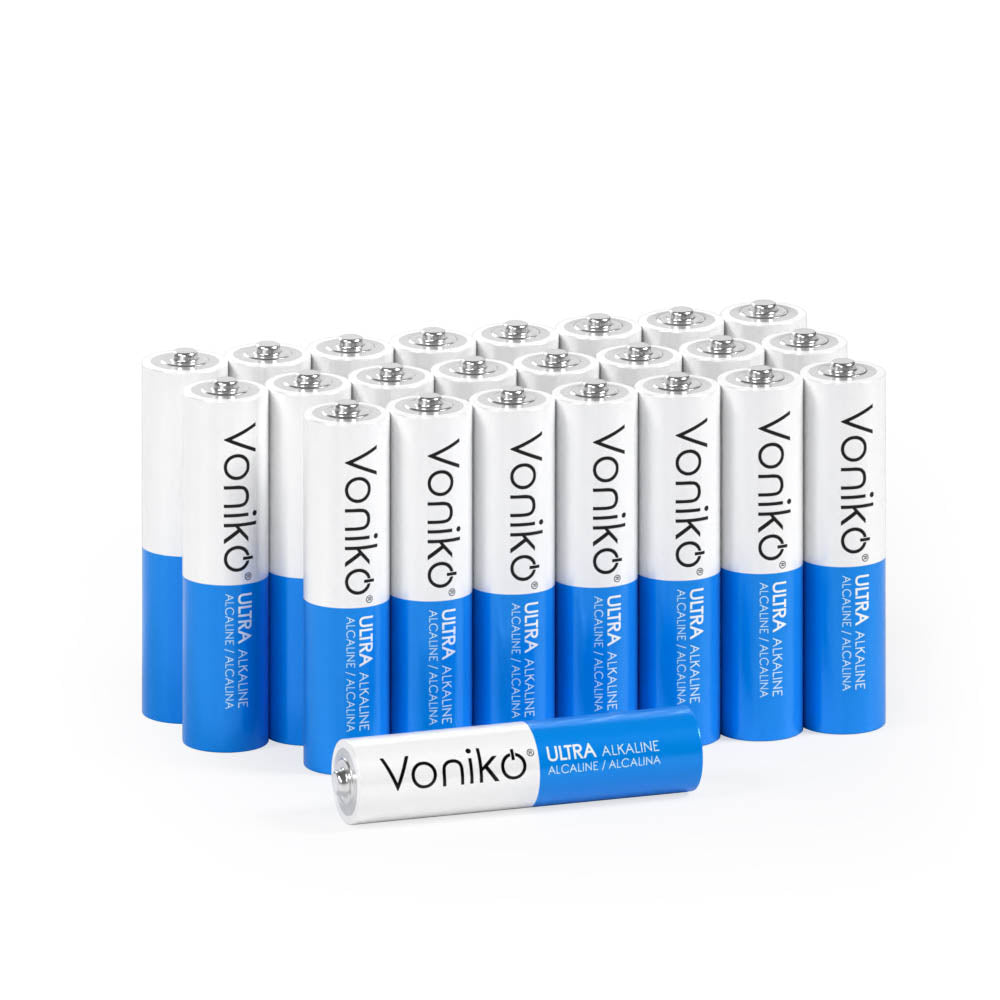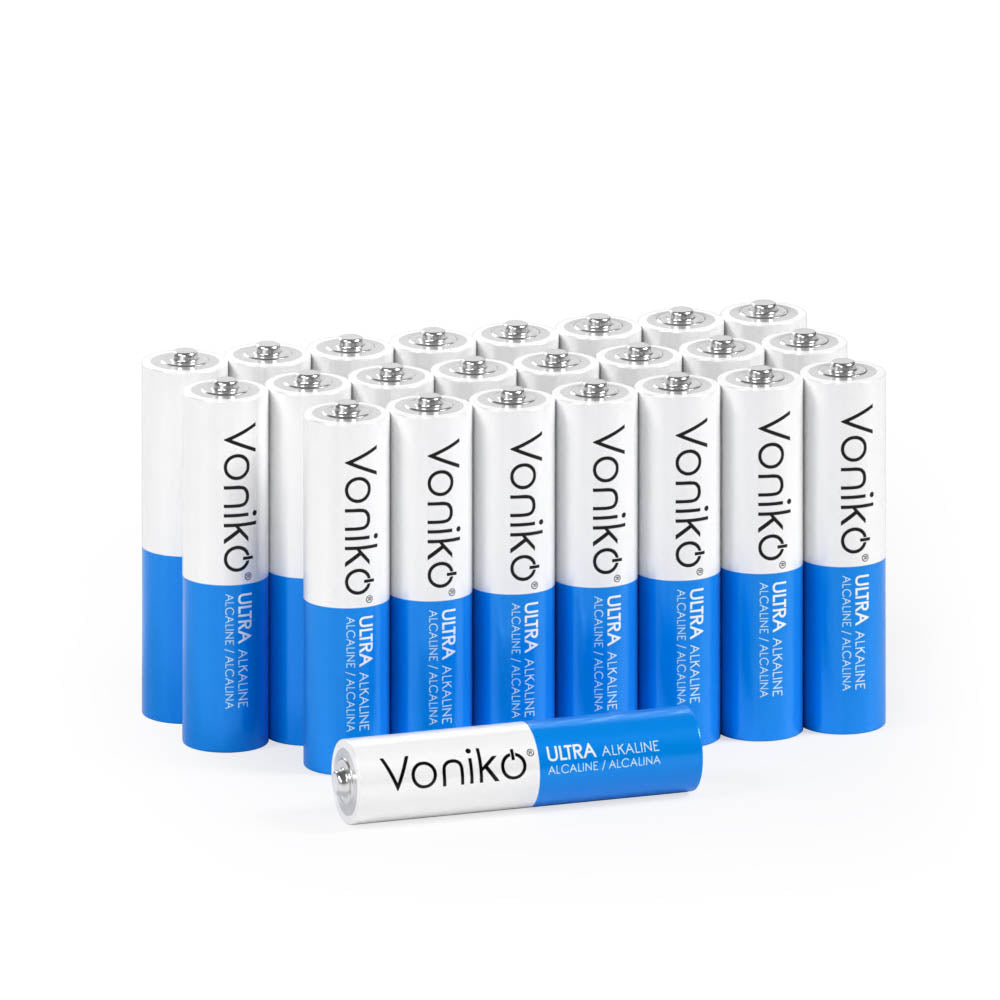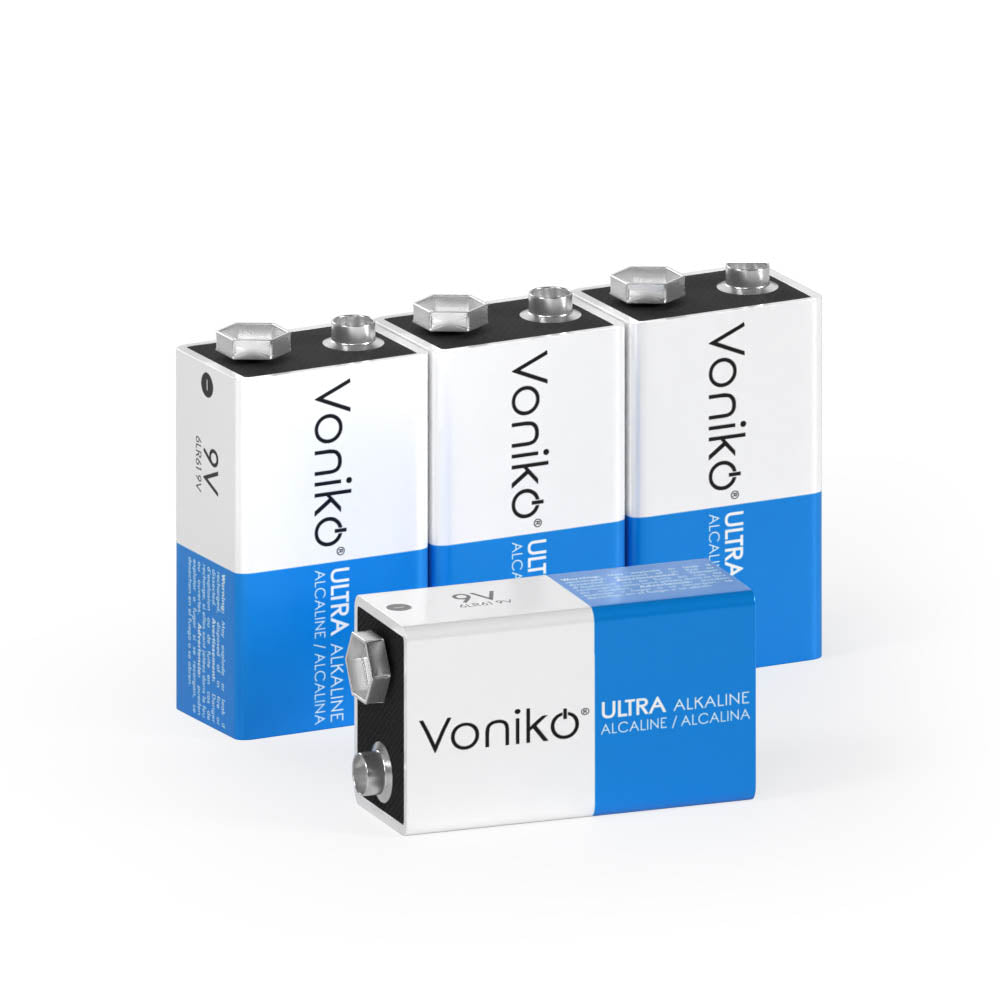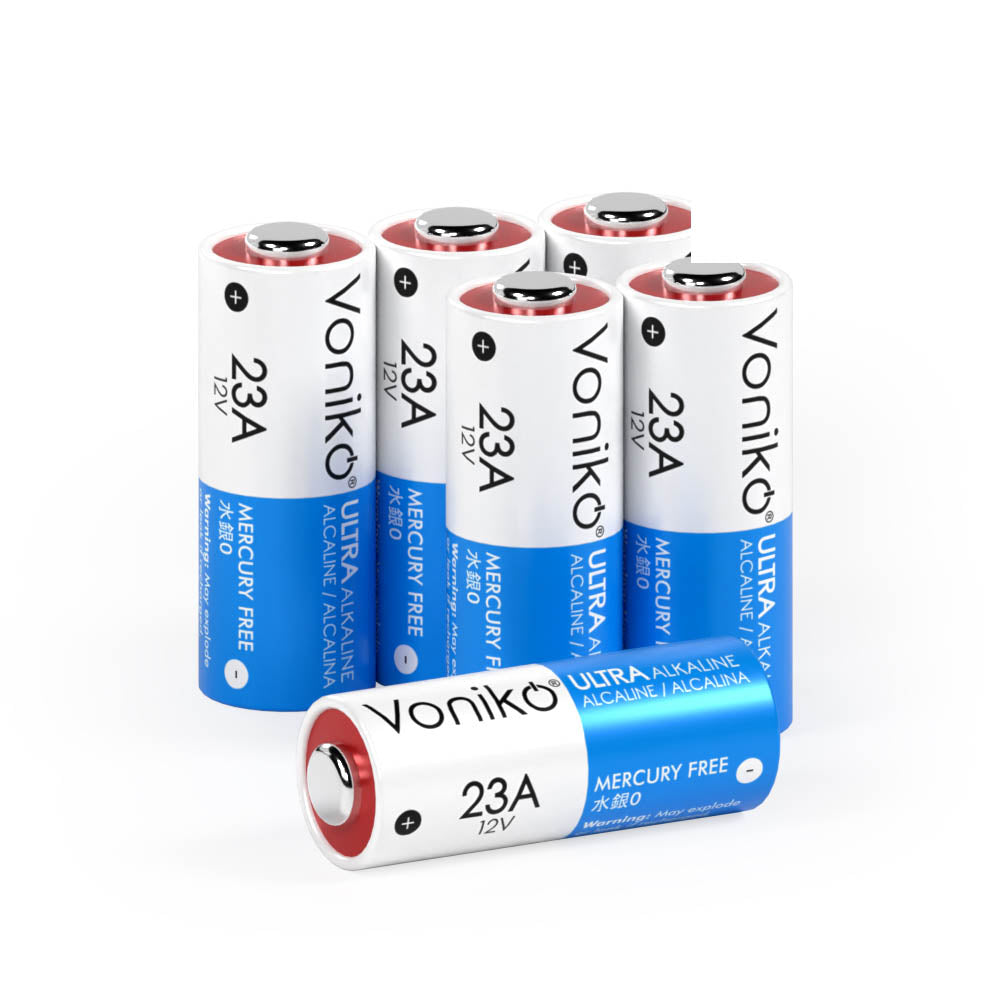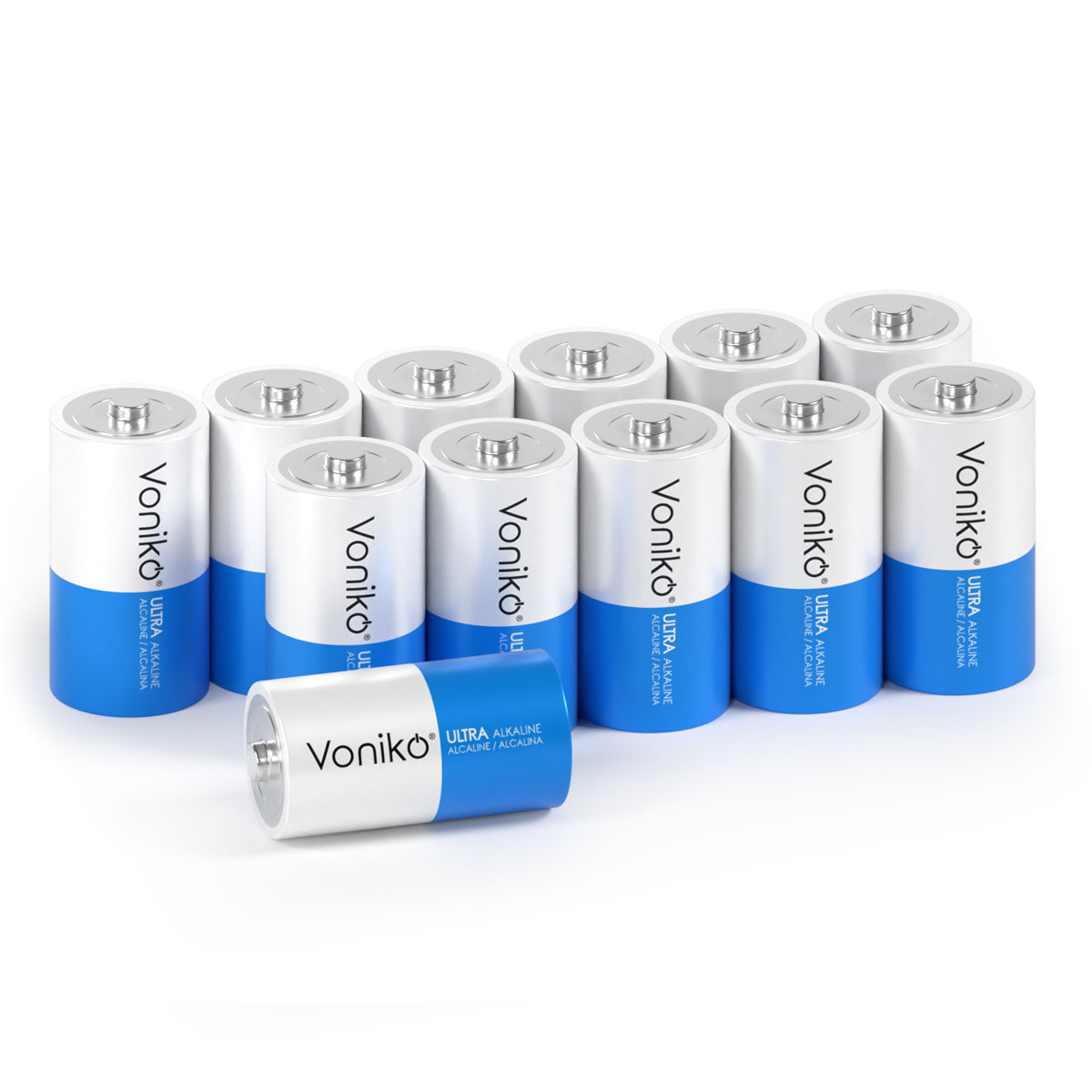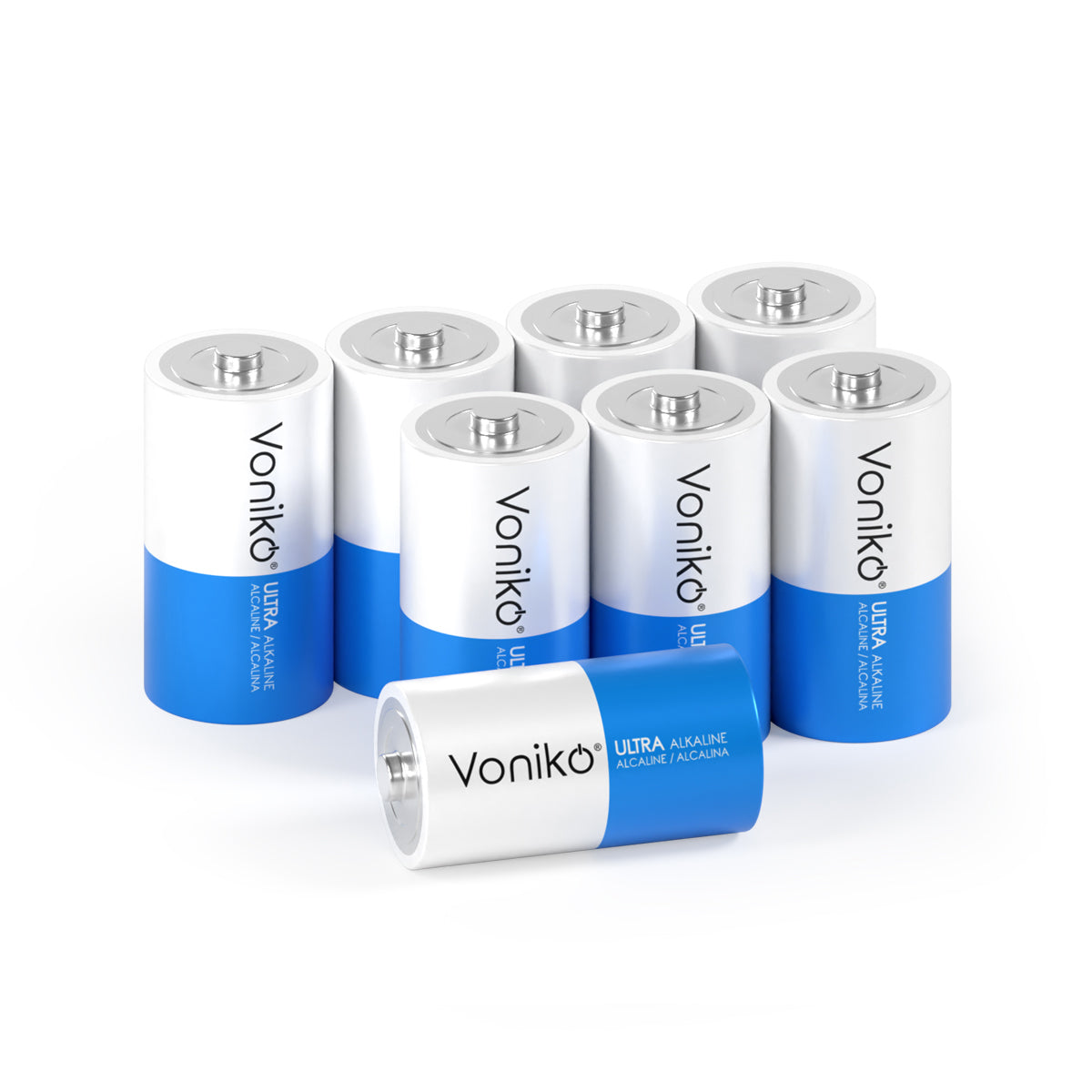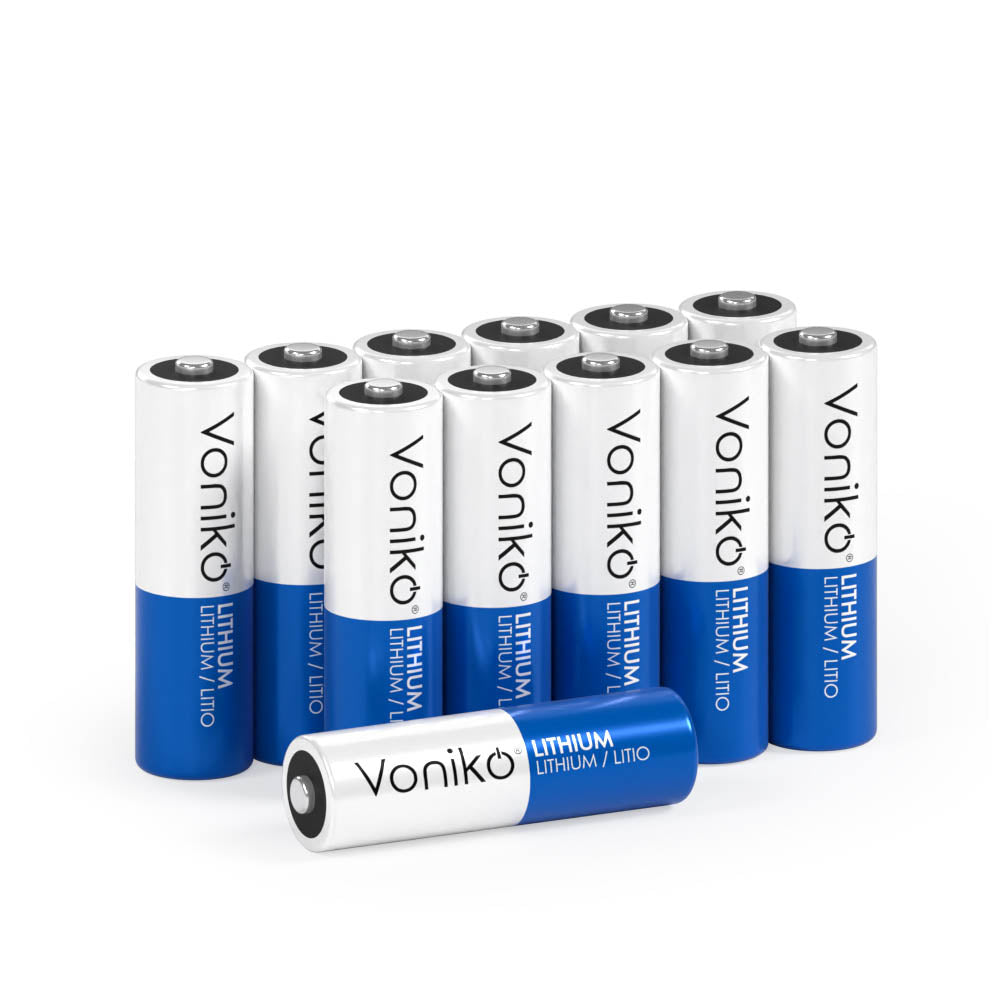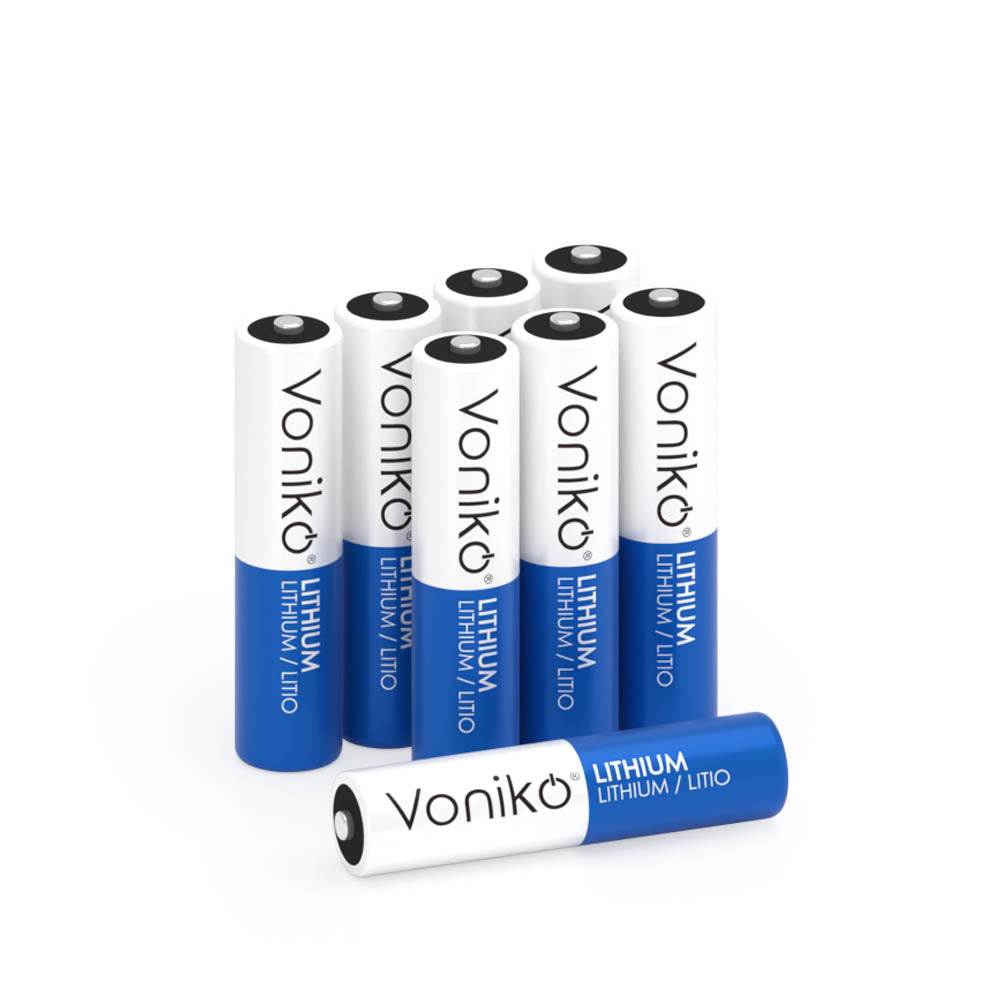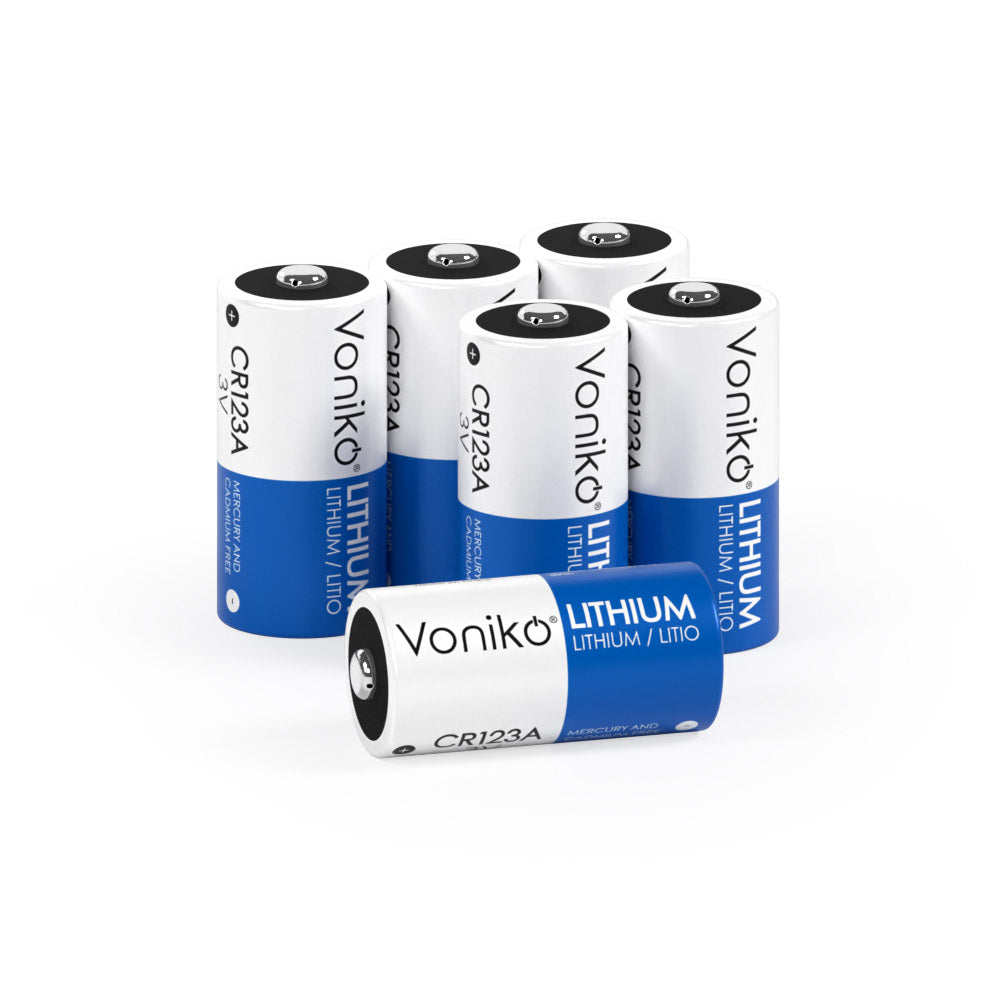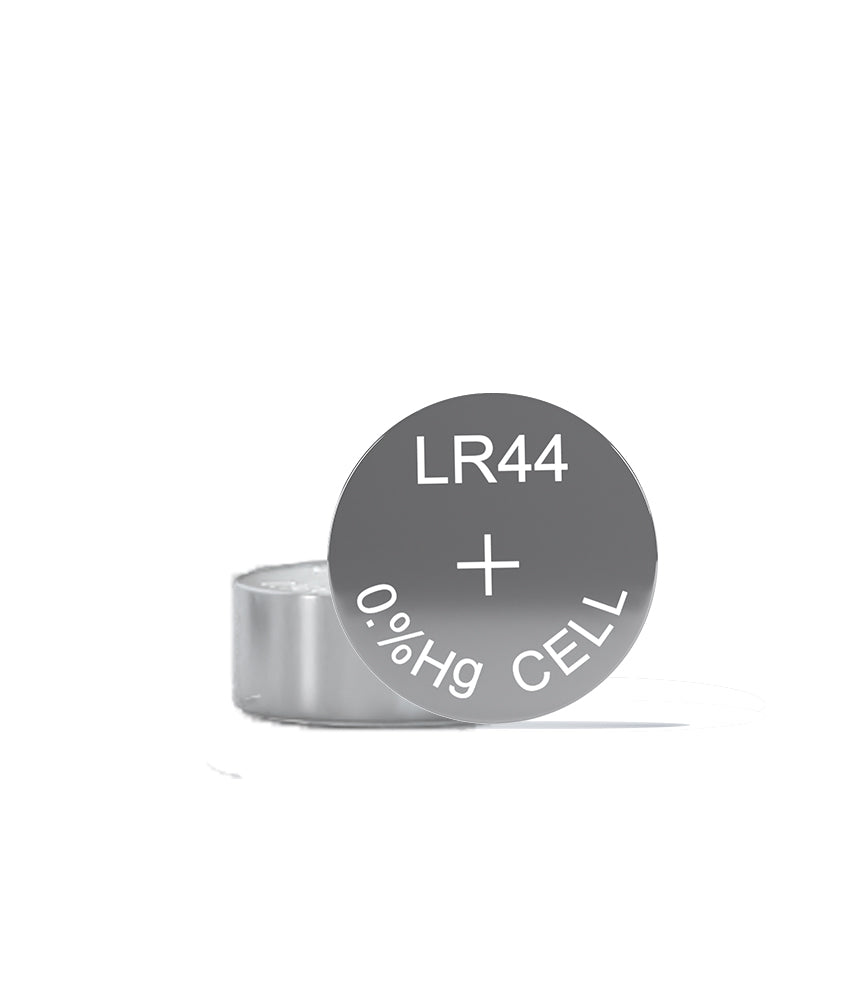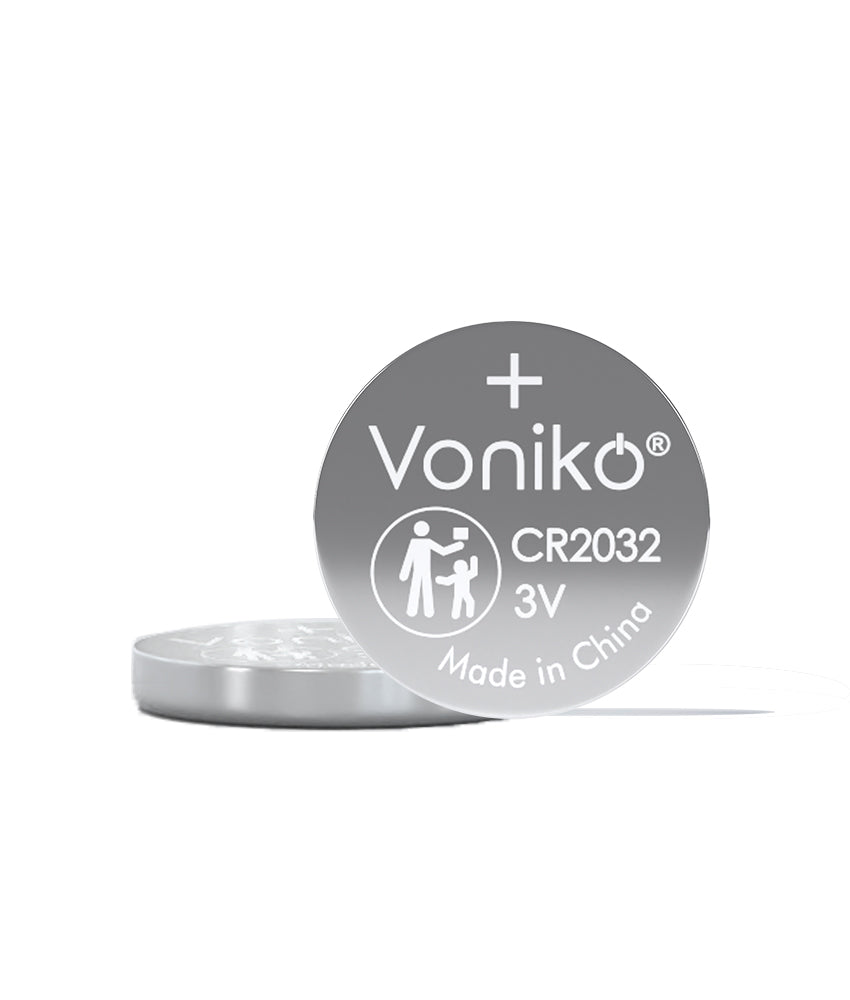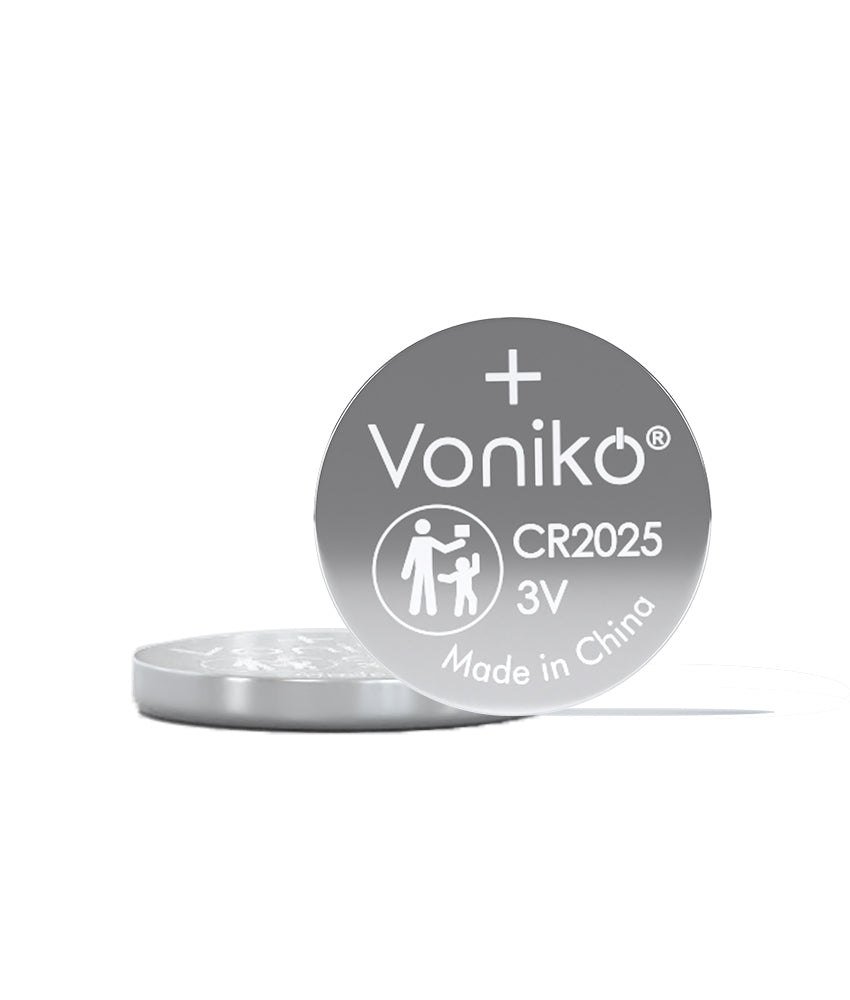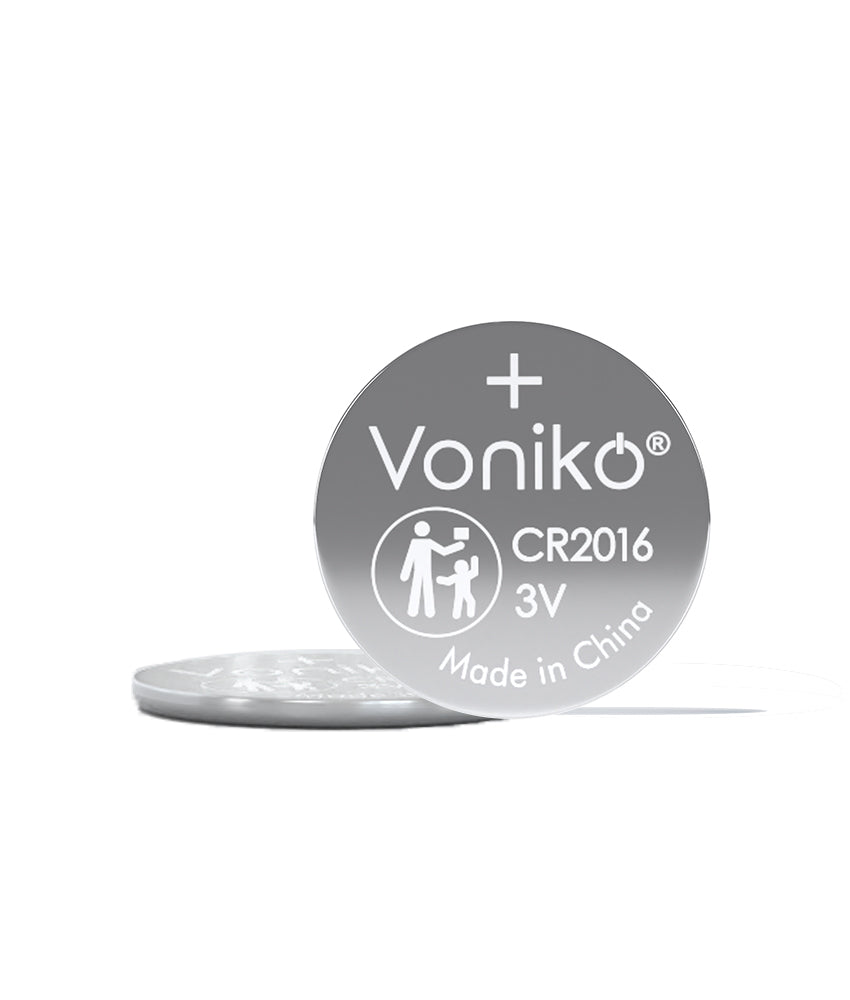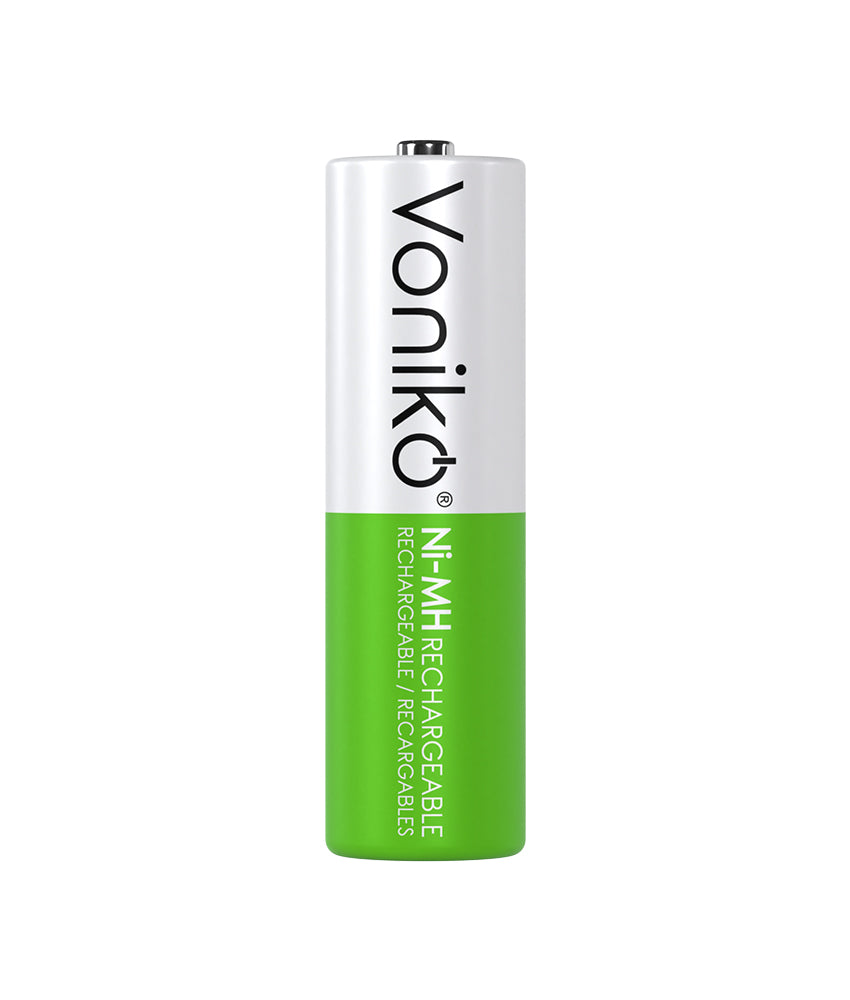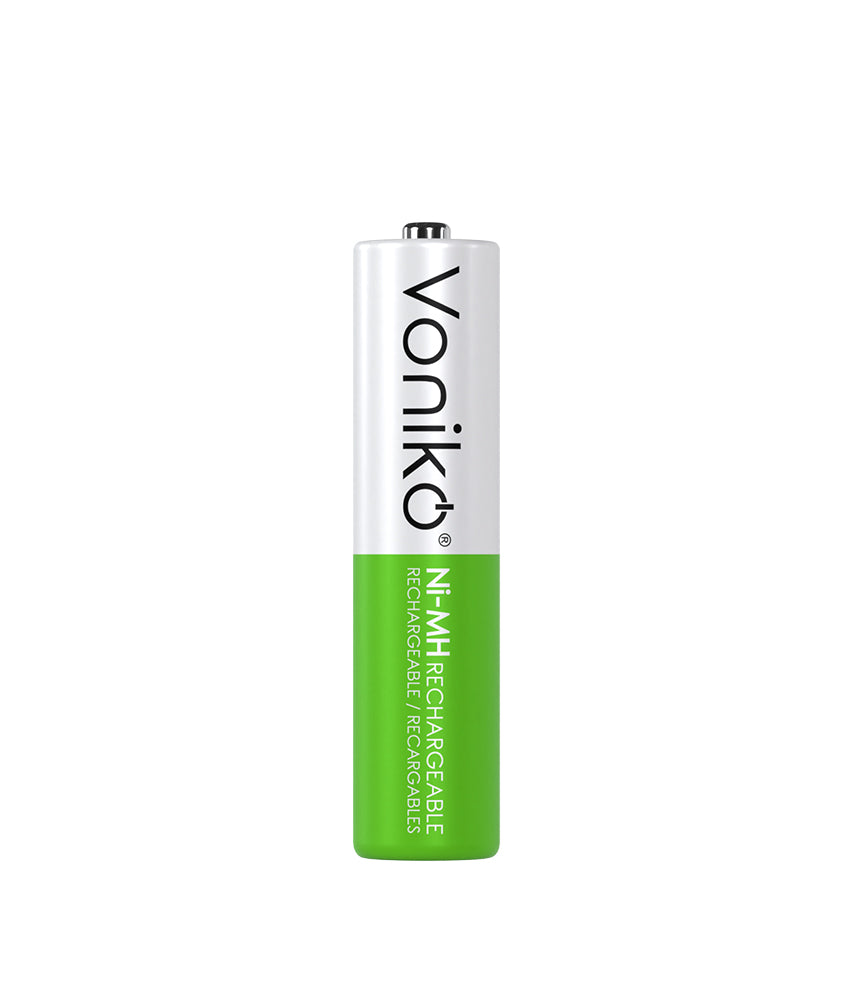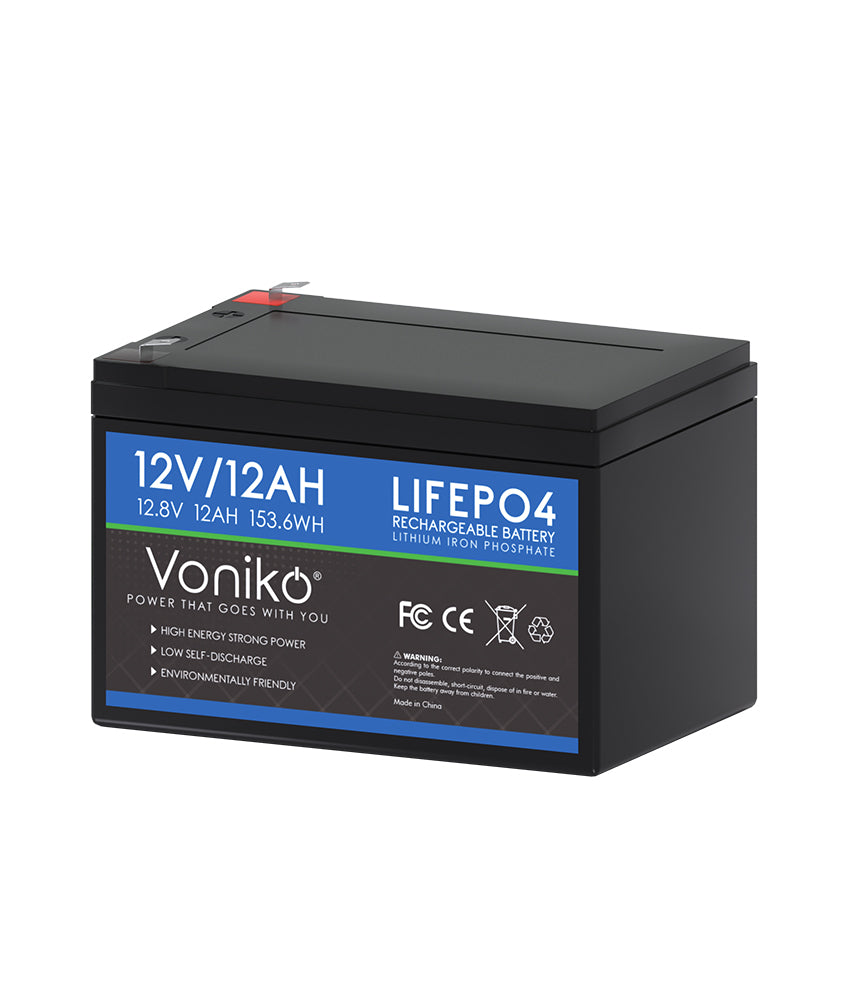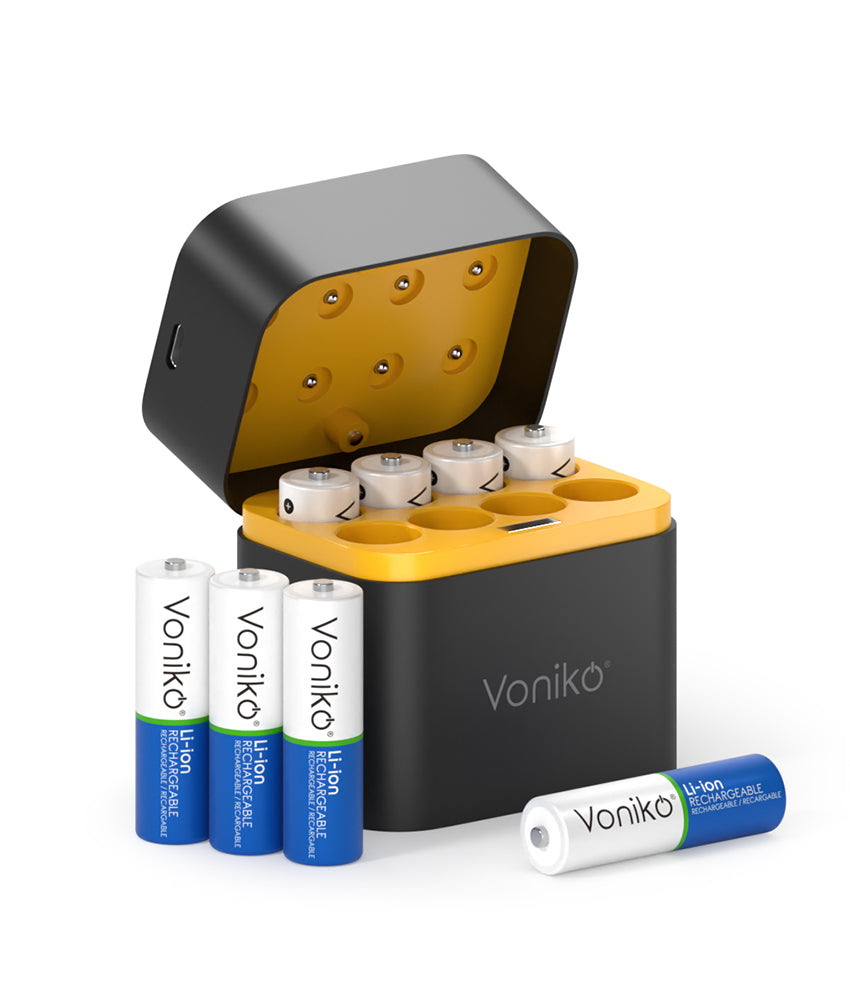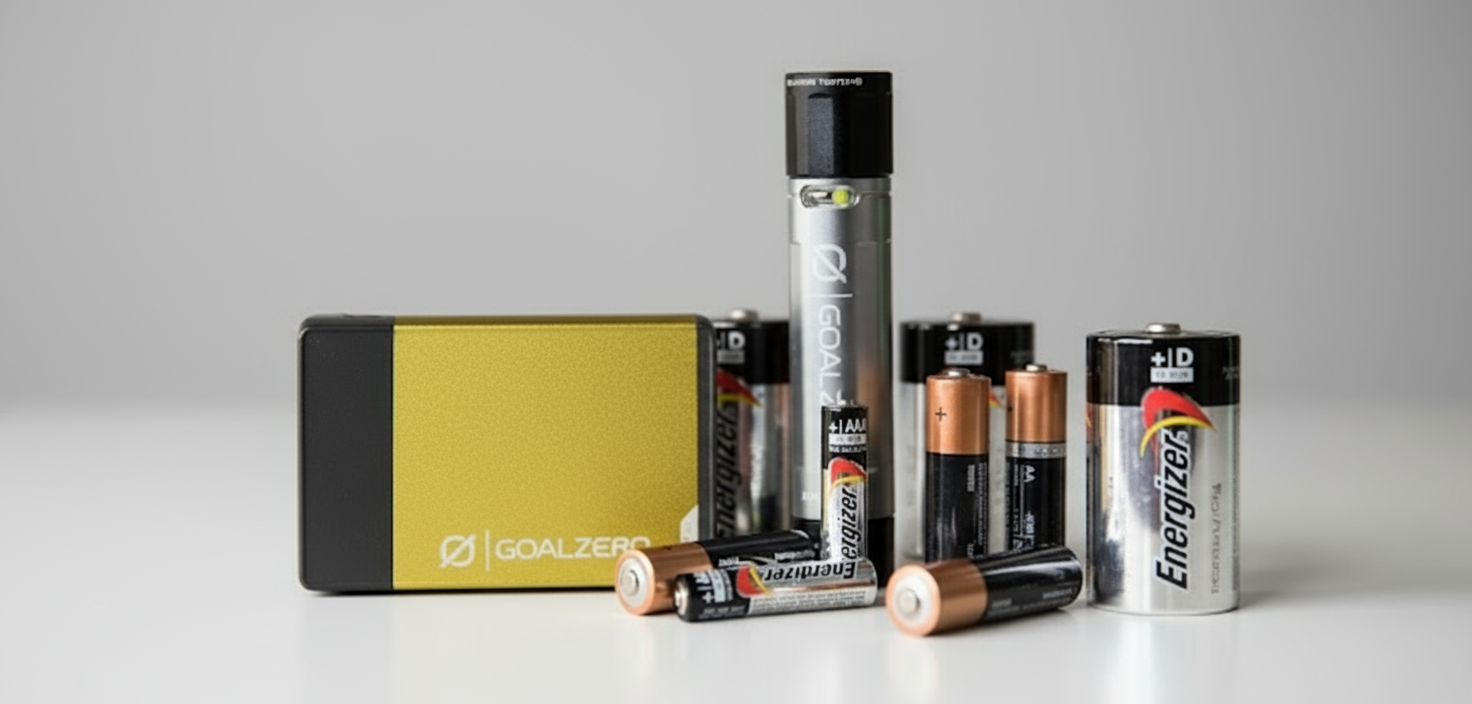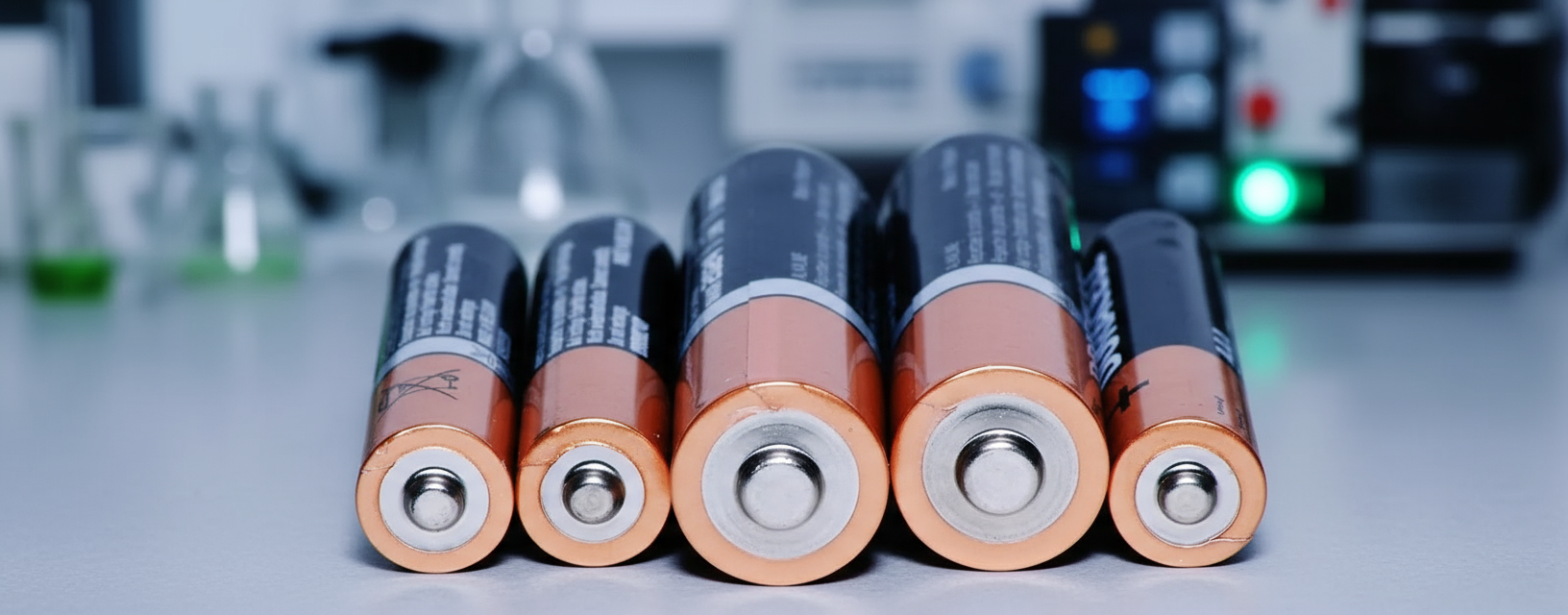We've all been there—staring at a pile of dead AA batteries from the TV remote, kid's toys, or that flashlight in the garage, wondering what to do with them. Can you just toss alkaline batteries in the trash? Should you recycle them? And if so, how? The answers aren't always clear-cut, and the rules can change based on where you live.
At Voniko Batteries, we believe understanding how to properly handle spent batteries is just as important as choosing quality alkaline batteries in the first place. While alkaline batteries power countless devices in our daily lives, from smoke detectors to wireless mice, knowing the right way to dispose of them helps protect our environment and keeps valuable materials from ending up in landfills. Let's break down everything you need to know about recycling alkaline batteries.
Can You Throw Alkaline Batteries in the Trash?
Here's where things get a bit confusing. Non-rechargeable alkaline batteries can be discarded with regular trash in most parts of the United States. This changed back in 1996 when A 1996 federal law phased out mercury in alkaline batteries, making them much safer for disposal.

Before that law, alkaline batteries contained mercury and were considered hazardous waste. Today, Since 1993, domestically produced alkaline and carbon zinc batteries contain no added mercury and are essentially mercury-free. This means the federal government now classifies them as non-hazardous waste in most states.
However, there's a major exception: in the state of California, it is illegal to throw away any kind of battery, including alkaline batteries. California treats all batteries as hazardous waste, requiring residents to take them to hazardous waste disposal facilities. Some local governments in other states also have their own recycling requirements, so it's always smart to check your local rules.
Even though you can legally trash alkaline batteries in most places, that doesn't mean you should. These batteries contain valuable materials like steel, zinc, and manganese that can be recovered and reused.
Where to Recycle Alkaline Batteries
If you want to do the right thing and recycle your alkaline batteries, you've got several options. The good news is that battery recycling is becoming easier and more accessible across the country.
Retail Drop-Off Locations
Many major retailers have partnered with recycling programs to accept batteries. Call2Recycle has established battery drop-off locations across the country, including Home Depot, Lowe's and Staples. While these programs primarily focus on rechargeable batteries, some locations also accept single-use alkaline batteries.
The Home Depot has partnered with Call2Recycle, a nonprofit battery recycling program. Rechargeable batteries can be dropped off in Call2Recycle bins at the store. However, it's worth noting that You can't take single-use batteries to Call2Recycle drop-off sites at The Home Depot in all cases. Call ahead to your local store to confirm they accept alkaline batteries.
Other retail options include Best Buy, Batteries Plus Bulbs, and some Staples locations. These stores may charge a small fee for alkaline battery recycling, but the service is convenient and helps keep batteries out of landfills.
Household Hazardous Waste Collection
Many cities and counties will accept single-use batteries during periodic household hazardous waste (HHW) collection events. Visit your city and county website to find out if they host these events. Some municipalities also have dedicated HHW locations that accept materials like batteries all year round. These facilities are designed to safely handle and recycle various household items that shouldn't go in regular trash.
Check with your local waste management department to find out about collection events in your area. Many communities hold these events quarterly or semi-annually, making them a convenient option for getting rid of accumulated batteries.
Mail-In Recycling Programs
If you don't have easy access to drop-off locations, mail-in programs offer another solution. For single-use batteries, you can get a mail-order recycling kit. Companies like TerraCycle and Call2Recycle offer prepaid shipping containers where you can collect your dead batteries and send them off for proper recycling.
While these kits typically cost money, they're a convenient option for people in rural areas or those who want to recycle larger quantities of batteries at once. The fees vary depending on the size of the container and the company you choose.
How Does Alkaline Battery Recycling Work?
Understanding what happens to your batteries after you drop them off can help you appreciate why recycling matters. The recycling process for alkaline batteries is pretty straightforward but highly effective at recovering valuable materials.

At a battery recycling center like ERI, the alkaline batteries are separated from other types of batteries. Once they're separated, they're crushed and travel down a conveyor belt to pull the steel casings from the powder. This mechanical process breaks down the battery into its component parts.
Alkaline batteries contain three primary components: manganese dioxide (the positive electrode), zinc (the negative electrode) and steel (the battery casing). These three components makeup 93% of the average alkaline battery. All of these materials have value and can be reused.
After crushing, The shredded material passes through magnets to separate the metal components from paper, plastic, and the powders. Steel can be melted down and reused to make new products requiring steel. The zinc and manganese can be recovered and used in various applications, from making new batteries to serving as ingredients in fertilizers or even dietary supplements.
All our collected batteries are sent to sorters and processors in the U.S. and Canada. These companies sort the batteries by chemistry, and then converted into byproducts that are used to make new products such as batteries, stainless steel alloy and cement additives. This closed-loop system helps conserve natural resources and reduces the need for mining new materials.
Proper Storage Before Recycling
Before you head to a recycling center, you need to store your dead batteries safely. Even spent batteries can pose fire risks if not handled correctly.
Collect used household batteries in a container. A cardboard box or plastic tub is a safe option. Prevent any fire risk by taping 9-volt battery terminals before getting rid of them. This is especially important for 9-volt batteries, which have both terminals on top and can easily short circuit if they touch metal or each other.
Here's what you should do:
- Store batteries in a non-metal container with a lid
- Use clear packing tape or electrical tape to cover the terminals of 9-volt batteries
- Keep batteries in a cool, dry place away from direct sunlight
- Don't mix damaged or leaking batteries with regular ones
- Aim to drop batteries to recycle within six months, ensuring they are bagged or taped
If you notice a battery that's swollen, leaking, or damaged, handle it with extra care. If you see a swollen or bulging battery, immediately put it in a non-flammable material such as sand or kitty litter in a cool, dry place. DO NOT THROW AWAY. Contact Call2Recycle customer service at 1-877-723-1297 for proper disposal instructions.
Types of Batteries and Their Disposal Rules
Not all batteries are created equal, and it's important to know the difference. While we're focusing on alkaline batteries here, you might have other battery types at home that require different handling.

Also known as primary or single-use batteries, alkalines are not hazardous and can be disposed of in the regular trash once they wear out. These batteries are classified by the federal government as non-hazardous waste. Alkaline, silver oxide, zinc-air, zinc-carbon, and zinc-chloride - commonly known as AA, AAA, 9V, and D - are all types of primary batteries. Alkaline batteries are composed primarily of common metals (steel, zinc, and manganese) and do not pose a health or environmental risk during normal use or disposal.
Rechargeable batteries, on the other hand, must always be recycled. While you can put "household" alkaline batteries in the trash, it is DANGEROUS and ILLEGAL to dispose of all rechargeable and most single-use batteries with trash or recycling. Batteries can catch fire and even explode. Improper disposal can lead to serious property damage, injury, and even death.
This includes lithium-ion batteries found in smartphones, laptops, and power tools, as well as nickel-cadmium and nickel-metal hydride batteries. These batteries contain heavy metals and can pose serious safety hazards if damaged.
Why Recycle Alkaline Batteries?
You might be wondering: if alkaline batteries are safe to throw away, why bother recycling them? There are several good reasons to make the extra effort.
First, recycling recovers valuable materials. Even though alkaline batteries no longer contain mercury, they still have plenty of useful stuff inside. The steel casing can be melted down and reused. The zinc and manganese can be extracted and used in new products, reducing the need to mine these materials from the earth.
Second, it's better for the environment overall. While modern alkaline batteries won't leach toxic mercury into landfills like older ones did, they still take up space and contain materials that could be put to better use. Mining for new zinc and manganese has environmental impacts, so recycling helps reduce those effects.
Third, it sets a good example and builds good habits. As we move toward a more circular economy where we reuse and recycle more materials, developing the habit of recycling all batteries—not just the hazardous ones—makes sense. Plus, it's easy to accidentally mix rechargeable batteries in with alkaline ones, so having a system to recycle all batteries ensures nothing dangerous ends up in the trash.
State and Local Battery Recycling Laws
Battery disposal rules can vary significantly depending on where you live. While federal law allows alkaline batteries to be thrown in the trash, some states and local governments have stricter requirements.

As mentioned earlier, California has the toughest battery laws, classifying all batteries as hazardous waste. In California, for example, it is illegal to dispose of alkaline batteries in the trash. Authorities in some other states treat alkaline batteries as household hazardous waste, while state law elsewhere does not distinguish these batteries from domestic waste.
All stores in New York State that sell rechargeable batteries or products containing them MUST accept rechargeable batteries for recycling. These include hardware stores, office supply stores, drugstores, and electronics stores. While this law specifically addresses rechargeable batteries, many of these stores also accept alkaline batteries.
Other states with battery recycling programs include Vermont, which has comprehensive battery stewardship programs, and several states have enacted or are considering Extended Producer Responsibility (EPR) laws that require battery manufacturers to fund collection and recycling programs.
The best approach is to check with your local waste management authority or visit the Call2Recycle website to find out the specific rules in your area. When in doubt, recycle—it's always the safer choice.
FAQs About Recycling Alkaline Batteries
Can I put alkaline batteries in my curbside recycling bin?
No, you should never put batteries of any type in your curbside recycling bin. Batteries can cause fires at recycling facilities when they get crushed or damaged by sorting equipment. Always take batteries to designated drop-off locations or collection events.
Are rechargeable alkaline batteries the same as regular alkaline batteries?
No, they're different. Rechargeable alkaline batteries can be charged multiple times and should be recycled like other rechargeable batteries. Regular single-use alkaline batteries are disposable and can be thrown in the trash in most states (except California).
What should I do with old alkaline batteries from before 1996?
The individual state laws on battery recycling vary, but for most, they apply to alkaline batteries that were made before 1996. Before 1996, alkaline batteries contained mercury. They cannot be put in a landfill or incinerated. Older alkaline batteries must go to hazardous waste. If you have very old batteries, take them to a household hazardous waste facility.
Do all retailers accept alkaline batteries for recycling?
No, not all retailers accept alkaline batteries. While many stores have programs for rechargeable batteries, alkaline battery recycling is less common and may require a fee. Call ahead to confirm what types of batteries your local store accepts.
Is there a free way to recycle alkaline batteries?
Free alkaline battery recycling can be hard to find. Some municipalities offer free collection at household hazardous waste events, and certain retailers may accept them at no charge. However, many programs charge a small fee to cover the costs of processing and recycling alkaline batteries.

